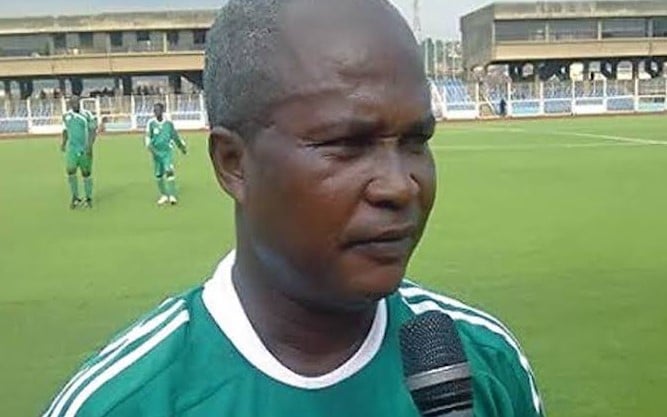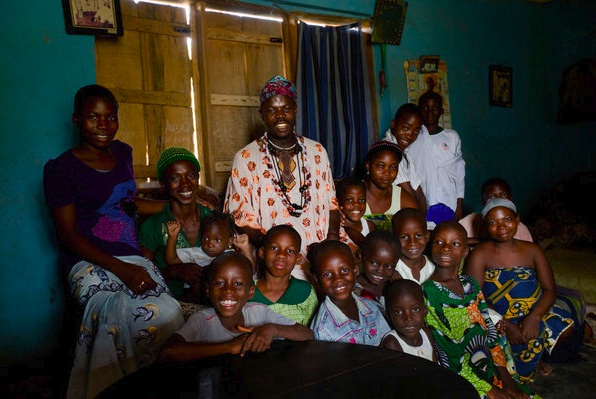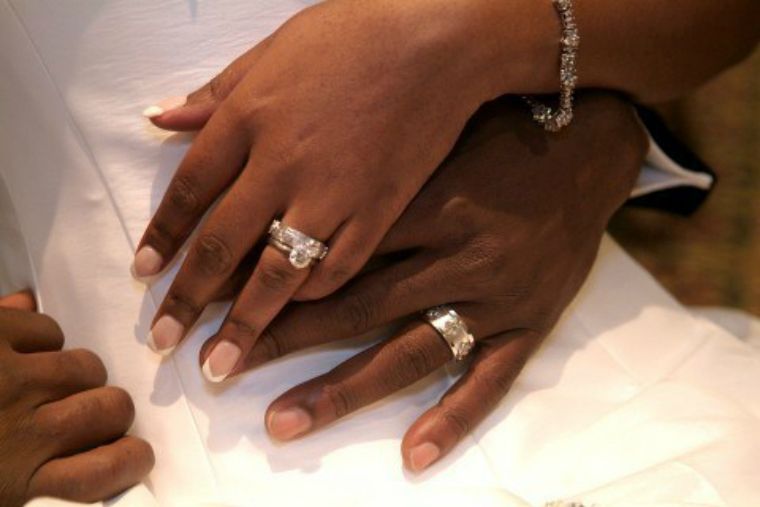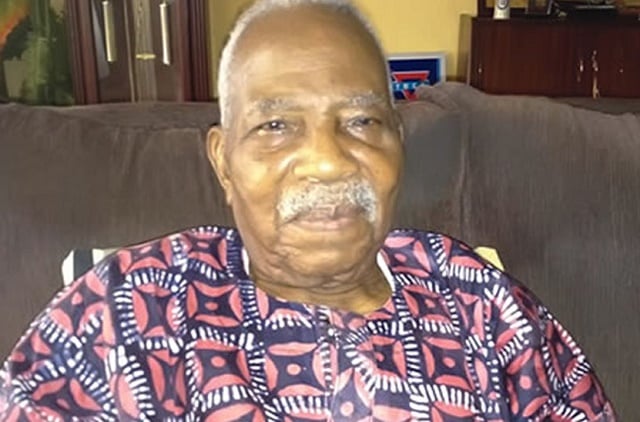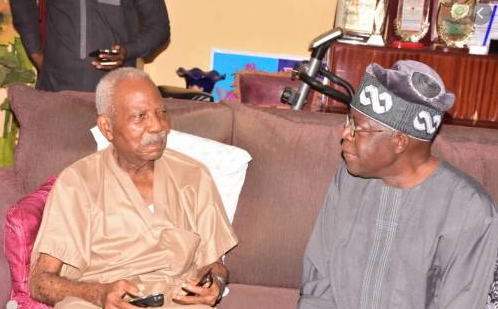When you talk about Henry Nwosu and how prodigiously talented he was, as a teenage footballer, which I barely witnessed, millennials look at you, like “you must be as old an ancestor” to have witnessed his active footballing years. He was among the glorious “Green Eagles” that won the first African Cup of Nations (AFCON) for Nigeria in 1980. He played alongside legends like Segun Odegbami, Christian Chukwu, Alloysius Atuegbu, Adokiye Amasiemaka, Tunde Bamidele, Kadiri Ikhana, Felix Owolabi, Emmanuel Okala, Best Ogedegbe, Okey Isima, David Adiele and several others. Those were times when people got involved in sports, especially football, not for pecuniary reasons as there was little or no money in sports in those days. Rather, it (taking to sports then) was down purely to passion, the need for physical fitness, pride, and the patriotic zeal to represent the fatherland.
So, when we talk about those who have become wealthy through their chosen careers, athletes in this epoch do not feature at all. Those among them, who are rich, were either rich before taking to sports or they later found success in other vocations after retirement. Some of them did, through coaching. The way it was in the Nigeria of yesteryear, so it was elsewhere, including Europe that is today, the “Mecca and Jerusalem” to professional footballers from across the globe until recently. The era of sports being money-spinning ventures could be roughly put at between the early 90s and to date.
But due to the unique benefit that can neither be quantified nor monetised, governments in Western countries have retirement packages for their ex-internationals, once you’ve reached a particular threshold – that is when you have featured for the team on a certain number of occasions, you’d be entitled to some benefits, sometimes, for life. Like in England, there is a reported monthly pension for ex-Three Lions players, according to the Nigerian-born former Wimbledon striker, John Fashanu.
It is believed that this pension will cater for their well-being after retirement. Issues like the affordability of healthcare, accommodation, and access to the basic needs of life become the rule rather than the exception. This is in addition to the normal National Health Service (NHS) which ensures that all legitimate residents of the UK are automatically entitled to affordable public health care. These players, in addition to the largesse, have the benefit of a working system that brings affordability of medical services within their reach and those of the common man. The athletes qualify for this first as a citizen, before what institutions like the International Federation of Professional Footballers (FIFPRO) and the Professional Footballers Association (PFA) offer.
Advertisement
Athletes in other parts of the world also enjoy these and more. But their Nigerian counterparts do not enjoy such a luxury. They live and, sometimes, die in penury without the nation which they dedicated their early lives to serving, lifting a finger of support. This is because the right policy on access to good healthcare delivery is not in place. Just take a look at Paul Gascoigne, a prodigious English talent but a chronic alcoholic, who is still being looked after by the system created around him. I wonder what would have become of him were he a Nigerian! Even the National Health Insurance Scheme (NHIS) that’s meant to bring health care service to within the reach of Nigerians, exists only on paper as far as the majority of the citizens are concerned. The only news of note coming out of the scheme was at a time an allegation of corruption against its executive secretary.
The political elites who are responsible for this care less about the fate of the common man on the street because they and their family members can afford the best available medical service anywhere around the world, thanks to their access to public funds. That is in addition to their propensity to pilfer any funds made available to set up what is not even up to the minimum standard in saner climes. As we speak right now, the president of the Federal Republic of Nigeria (Muhammadu Buhari), the person on whose table the buck stops, is in London for his “routine medical tourism” that will set the nation back by a few dozen of thousands in hard currencies. He is not expected back in the country until the second week of November, according to his special adviser on media and publicity, Femi Adesina.
Buhari has cumulatively spent close to a year in the UK for medical reasons in the last seven years of his administration. Yet he’s not found enough inspiration to put up at home, the kind of facility in which he’s being received and treated in the UK. It took an SOS cry by no least important personality than his wife and the first lady, Aisha Buhari, for the so-called State House Clinic that has been without basic drugs to administer even first aid treatments to receive some budgetary attention some years ago. This is a man who lost his immediate past chief of staff (Abba Kyari) to the cold hands of death due to an acute lack of health care facility in the country to take care of him when he was diagnosed with COVID-19 symptoms in 2020. A friend of mine who resides in Germany once told me that he, an immigrant, is on the same health insurance package as the (former) chancellor, Angela Merkel, which costs as “little” as €52 per month as a premium. And it covers almost all known life-threatening ailments in that part of the world.
Advertisement
But, in Nigeria, the institutional arrangement that should cater for the basic health needs of the downtrodden, national heroes like ex-footballers and even the political class remains a pipe dream. Is that not class suicide?
The last time the captain of the Green (now Super) Eagles squad that won the African Cup of Nations for Nigeria for the first time in 1980 and former coach of the national team, Christian Chukwu, fell sick, it took the philanthropic intervention of a billionaire oil magnate, Femi Otedola, to save his life. Not too long ago, it was again a former Nigerian under-23 team player, Kaseem Yebsaya, who became depressed with no help coming from anyone and no institutional arrangement to serve as a safety net.
He was, however, lucky to have gotten the needed help from a good Samaritan who took him to a psychiatric hospital in Kaduna for treatment. What about Wilson Oruma, a former captain of the national under-17 team – the Golden Eaglets — who won gold at the Japan ’93 cadet World Cup? He became depressed also, after falling victim to a swindler who robbed him of about ₦2 billion. It took the intervention of a few of his ex-teammates to help restore his mental health. I learnt he even suffered a relapse.
The list goes on and on. The latest episode of the desolate life that our national heroes are sentenced to after retirement manifests itself in the predicament of the youngest player among the epoch-making group of the 1980 Nations Cup-winning squad, Henry Nwosu. He was reported to have been bedridden due to a cardiovascular disease requiring urgent medical attention to save his life. My heart bled when I saw him in a picture being handed a cheque of ₦1,000,000 by the president of the Professional Footballers Association of Nigeria (PFAN), Tijani Babangida! I noticed the visible relief boldly written on his (Nwosu’s) face and I then shuddered to ask; is this what is required to get this man back to himself…? Like the Nigerian lingo goes; “Ṣe na so we go dey dey”? Roughly translated – is this how we are going to carry on, without a proper institutional arrangement to serve as a safety net for vulnerable Nigerians?
Advertisement
Is this how we will continue to rely on informal ad-hoc arrangements to offer hope and security to those of us who live on the margin of society? Although I can’t boast of up to 2% of N1 million in my bank accounts as I write this, I believe it is too little an amount to be allowed to end the life of any Nigerian, especially someone like Henry Nwosu (MON), who’d in the past put smiles on people’s faces through his God-given footballing talent. Credit must be given to the Tijani Babangida-led PFAN for always coming up with a response whenever any ex-footballer is in a dire situation. I wish athletes in other sports replicate what TJ is doing with PFAN. He also played some role, reportedly, in getting Yebsaya the needed help.
When we talk of an ailment requiring as little an amount of money as N1 million (about $2,000) to cure in the 21st century, it would never be allowed to threaten, let alone take the life of any citizen in Western countries because there is always a health insurance package that entitles every resident to treatment for anything like that. But in Nigeria, nothing like that is ever feasible. Simple schemes that work elsewhere in the world get turned upside down when it comes to Nigeria.
While I am not discounting the fact that some ex-players were very profligate with their earnings during their active days as professional footballers, the government has no excuse for failing to discharge its responsibility of making available, robust healthcare facilities that are affordable and accessible to every citizen in the country.
In fairness to the political elites, however, they themselves are not even insulated from the consequences of their own failures (actions and inactions), especially in the health sector. That is why they do not have a retirement age. They have to continue to work to be able to earn enough money to sponsor their medical tourism overseas. Whosoever makes the mistake of retiring or quitting the stage among them would be committing a “socioeconomic harakiri”. He would have, inadvertently, excluded himself from the exclusive club of those who have unfettered access to our exchequer and would, therefore, be unable to treat malaria and cold in Dubai, toothache in Frankfurt, arthritis in London, dysentery in New York, conjunctivitis in Turin, and hepatitis in Mumbai. Once they quit office, they cease being able to afford the fees for their medical tourism. Medical tourism, remember, is a part of what has brought the value of the naira against the dollar and other major currencies to the mud.
Advertisement
The stench of the rots their failure while in office created, follows them around like the shadow follows an object. They die of common ailments like malaria, typhoid and even cold, just like any ordinary Nigerian would, due to the non-existence of basic healthcare facilities that they failed to put in place while in the position of authority. Added to this is the acute shortage of manpower in the health sector, currently being worsened by brain drain. Some of them, whether in retirement or in service became as vulnerable as the rest of us, especially during the period of lockdown, occasioned by COVID-19. During the period, there was a strict restriction on international flights. Nobody was able to fly out of the country for any reason, be it medical, business, leisure, or educational. Some of the privileged died in the same hospitals where the poor also die regularly. What poetic justice! What a comeuppance!
What is happening to Henry Nwosu is exactly what happens to vulnerable Nigerians on a regular basis and it is an advertisement of everything that is wrong with us as a nation. We are a people being killed softly by our leaders who are supposed to protect our lives. While public-spirited Nigerians with conscience rally around Nwosu, I pray that the Lord Almighty, the author and giver of life heals him completely and restores his health to what it used to be.
Advertisement
Abubakar writes from Ilorin. He can be reached via 08051388285 or [email protected]
Advertisement
Views expressed by contributors are strictly personal and not of TheCable.
Add a comment

